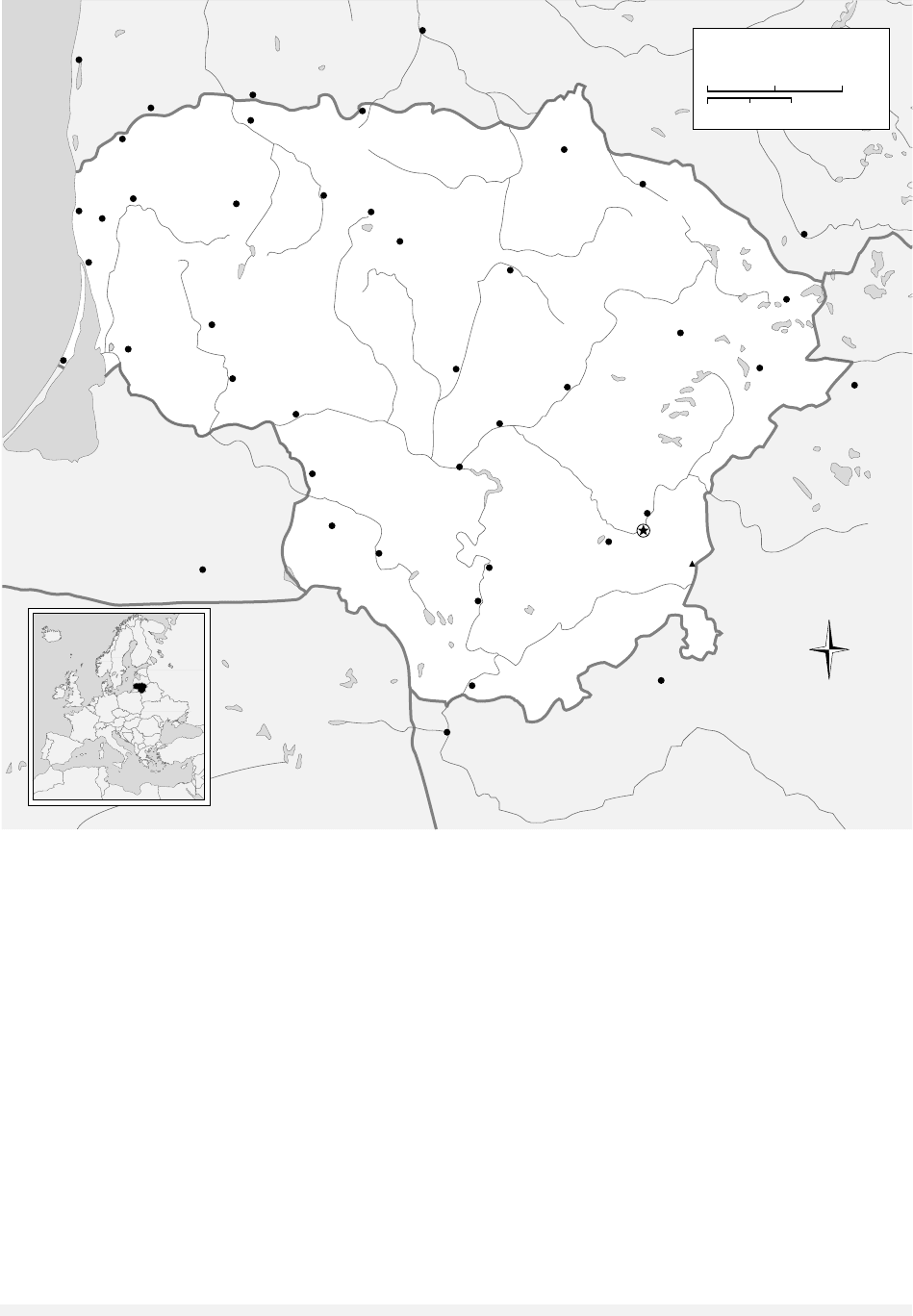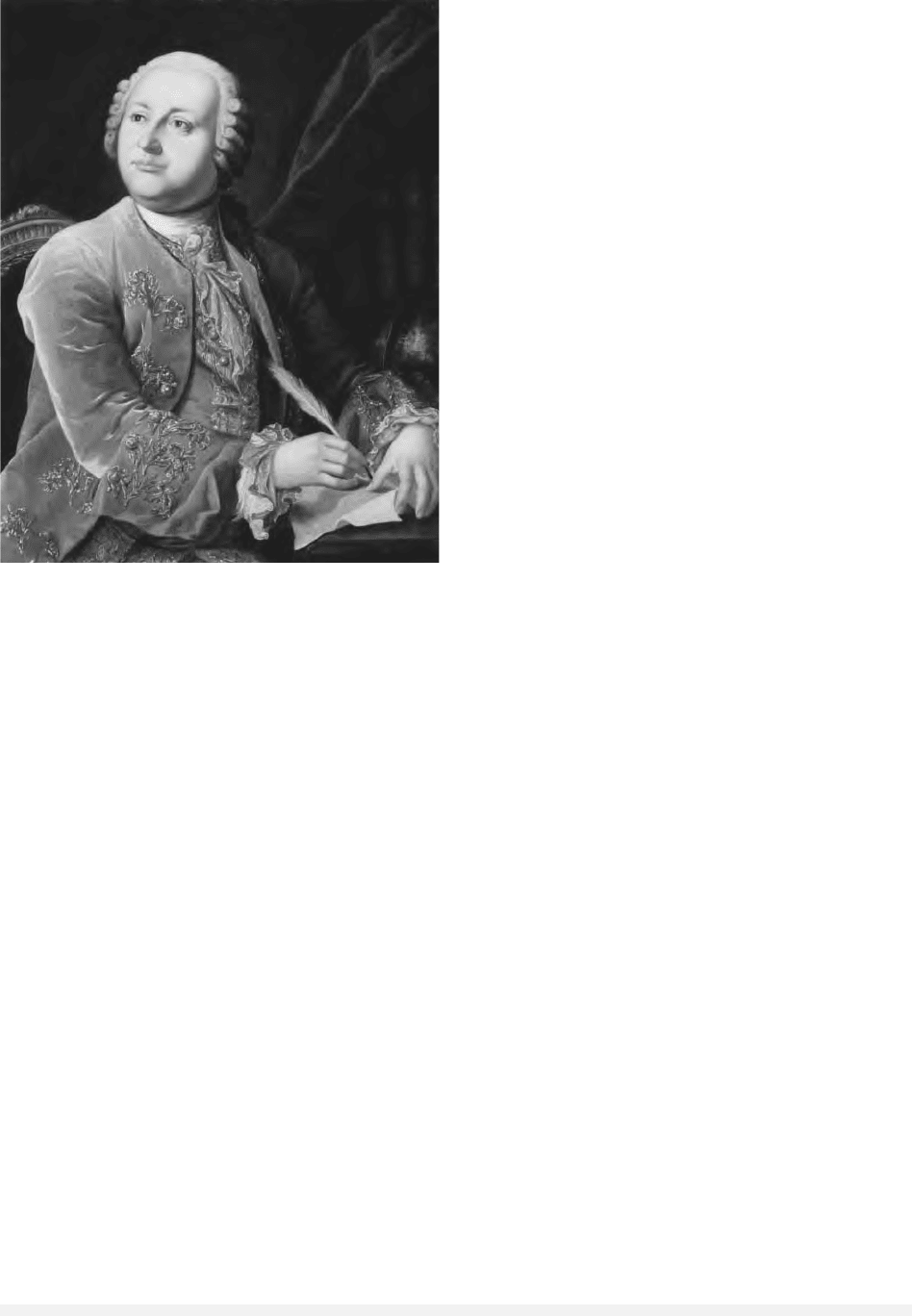Encyclopedia of Russian History
Подождите немного. Документ загружается.


ity and conscientiousness . . . a person of the rarest
erudition and generous spirit, who educated a
whole galaxy of worthy students” (Kultura No. 36,
7–13 October, 1999, 1). Another said, “[He] took
the helm of the ship of Russian culture and steered
it to a hopefully better world.” He was a greatly
talented historian and many of his more than one
thousand publications were known throughout the
world’s academic community. By his life’s end he
had been granted honorary titles by sixteen na-
tional academies and European universities, as well
as several high honors from his native land, in-
cluding Hero of Soviet Labor. He served as a re-
searcher in various Soviet academic institutions of
renown, gained the title of university professor,
and for his seminal work on the Russian classic,
Lay of Igor’s Campaign, was received into the Soviet
Academy of Sciences. His very active life also led
him to membership in the Russian Duma after the
fall of the Soviet Union.
See also: ACADEMY OF SCIENCES; HISTORIOGRAPHY; LAY
OF IGOR’S CAMPAIGN
BIBLIOGRAPHY
Likhachev, Dmitry S. (2000). Reflections on the Russian
Soul: A Memoir. Budapest, Hungary: Central Euro-
pean University Press.
J
OHN
P
ATRICK
F
ARRELL
LISHENTSY See DISENFRANCHIZED PERSONS.
LITHUANIA AND LITHUANIANS
Located on the southeastern shore of the Baltic Sea,
Lithuania has been an independent republic since
1991. Encompassing 66,200 square kilometers, it
has a population (2001) of 3,491,000 inhabitants,
of whom 67.2 percent live in cities and 32.8 per-
cent in rural areas. Over 80 percent of the popula-
tion is Lithuanian, about 9 percent Russian, and 7
percent Polish.
Lithuanians first established a government in
the thirteenth century to resist the Teutonic
Knights attacking from the West. In 1251 the
Lithuanian ruler Mindaugas accepted Latin Chris-
tianity, and in 1253 received the title of king, but
his successors were known as Grand Dukes. When
Tatars overran the Russian principalities to the East,
the Grand Duchy expanded into the territory that
today makes up Belarus and Ukraine. At its height,
at the end of the fourteenth century, although the
Lithuanians are a Baltic and not a Slavic people,
Lithuania had a majority of East Slavs in its pop-
ulation, and for a time it challenged the Grand
Duchy of Moscow as the “collector of the Russian
lands.”
Faced by Moscow’s growing strength, Lithu-
anian leaders turned to Poland for help, and
through a series of agreements made between 1385
and 1387, the two states formed a union, solidi-
fied by the marriage of the two rulers, Jagiello and
Jadwiga, and by the reintroduction of Latin Chris-
tianity through the Polish structure of the Roman
Catholic church. (Lithuania had reverted to pagan-
ism after Mindaugas’s abdication in 1261.) Rein-
forced by the Union of Lublin in 1569, the
Polish-Lithuanian Commonwealth continued until
the Partitions of Poland at the end of the eighteenth
century. In 1795 the Third Partition of Poland
brought Russian rule to most of what today con-
stitutes Lithuania.
Russian authorities attempted to wean the
Lithuanians from the Polish influences that had
dominated during the period of the Common-
wealth. The Russians banned the use of the name
“Lithuania” (Litva) and administered the territory
as part of the “Northwest Region.” After the Pol-
ish uprisings of 1831 and 1863, the authorities
helped Lithuanians in some ways but also tried to
force them to adopt the Cyrillic alphabet. At the
same time, the authorities limited the economic
development of the region, which lay on the
Russian-German border. Under these conditions, a
Lithuanian national consciousness emerged, and
with it the goal of cultural independence from the
Poles and eventual political independence from
Russia.
The Lithuanians received their opportunity in
the course of World War I. On February 16, 1918,
after almost three years of German occupation, the
Lithuanian Council (Taryba) declared the country’s
independence, but a provisional government began
to function only after the German defeat in No-
vember 1918. Russian efforts in 1919 to reclaim
the region in the form of a Lithuanian Soviet So-
cialist Republic failed, and in May 1920 a Con-
stituent Assembly met and formalized the state
structure.
The First Republic’s foreign policy focused on
Lithuania’s claim to the city of Vilnius as its his-
toric capitol. The Poles had seized the city in 1920,
and as a result, Lithuania tended to align itself with
LITHUANIA AND LITHUANIANS
863
ENCYCLOPEDIA OF RUSSIAN HISTORY

Germany and the Soviet Union as part of an anti-
Versailles camp. In 1939, by the terms of the Nazi-
Soviet Non-Aggression pact, Germany and the
Soviet Union were to divide Eastern Europe, and
Lithuania fell into the Soviet orbit. In 1940 Soviet
forces overthrew the authoritarian regime that had
ruled Lithuania since 1926, and Moscow directed
the country’s incorporation into the Soviet Union
as a constituent republic.
The 1940s brought destruction and havoc to
Lithuania. In 1940 and 1941, Soviet authorities de-
ported thousands of Lithuanian citizens of all na-
tionalities into the interior of the USSR. When the
Germans invaded in 1941, some local people joined
with the Nazi forces in the massacre of the vast
majority of the Jewish population of Lithuania. (In
1940 and 1941 Jews had constituted almost 10
percent of Lithuania’s population.) When the So-
viet army returned in 1944 and 1945, Lithuanian
resistance erupted and continued into the early
1950s. Thousands died in the fighting, and Soviet
authorities deported at least 150,000 persons to
Siberia. (The exact number of killings and deporta-
tions is subject to considerable dispute.)
Under Soviet rule the Lithuanian social struc-
ture changed significantly. Before World War II,
LITHUANIA AND LITHUANIANS
864
ENCYCLOPEDIA OF RUSSIAN HISTORY
Juozapines
985 ft.
292 m.
Kurshskiy
Zaliv
Baltic
Sea
¯
N
e
m
u
n
a
s
J
u
r
a
D
u
b
y
s
a
N
e
v
e
z
i
s
ˇ
S
v
e
n
t
o
j
i
N
e
r
i
s
N
e
m
u
n
a
s
M
e
r
k
y
s
M
i
n
i
j
a
V
e
n
t
a
M
u
ˇs
a
Lukastas
¯
.
¯
Druskininkai
Hrodna
Lida
Pastavy
Alytus
Punia
Lentvaris
Naujoji
Vilnia
Marijampole
·
Jonava
Kedainiai
·
Jurbarkas
Sintautai
Chernyakhovsk
Taurage
·
ˇ
Silute
·
Utena
Ignalina
Snieckus
Panemunis
Ukmerge
·
Radviliˇskis
Birzai
Zagare
Gramzda
Ezere
Skoudas
Daugavpils
Jelgava
Leipaja¯
Kurˇsenai
·
Mazeikiai
Palanga
Kartena
Kretinga
Nida
Telˇsiai
ˇ
Silale
Vilkaviˇskis
Klaipeda
·
ˇ
Siauliai
Panevezys
Vilnius
Kaunas
.
RUSSIA
POLAND
LATVIA
BELARUS
W
S
N
E
Lithuania
LITHUANIA
40 Miles
0
0
40 Kilometers
20
20
ˆ
ˆ
ˆ
ˆ
ˆ
Lithuania, 1992 © M
ARYLAND
C
ARTOGRAPHICS
. R
EPRINTED WITH PERMISSION

the majority of Lithuanians were peasants, and
even at the beginning of the twenty-first century,
many urban dwellers still maintained some sort of
psychological link with the land. The Soviet gov-
ernment, however, collectivized agriculture and
pushed industrialization, moving large numbers of
people into the cities and developing new industrial
centers. By the 1960s, after the violent resistance
had failed, more Lithuanians began to enter the So-
viet system, becoming intellectuals, economic lead-
ers, and party members. Emigré Lithuanian
scholars often estimated that only 5 to 10 percent
of Lithuanian party members were “believers,”
while the majority had joined out of necessity.
In 1988, after Mikhail Gorbachev had loosened
Moscow’s controls throughout the Soviet Union,
the Lithuanians became a focus of the process of
ethno-regional decentralization of the Soviet state.
Gorbachev’s program of reform encouraged local
initiative that, in the Lithuanian case, quickly took
on national coloration. The Lithuanian Movement
for Perestroika, now remembered as Sajudis, mobi-
lized the nation first around cultural and ecologi-
cal issues, and later, in a political campaign, around
the goal of reestablishment of independence.
Gorbachev quickly lost control of Lithuania,
and he successively resorted to persuasion, eco-
nomic pressure, and finally violence to restrain the
Lithuanians. After the Lithuanian Communist
Party declared its independence of the Soviet party
in December 1989, worldwide media watched Gor-
bachev travel to Lithuania in January to persuade
the Lithuanians to relent. He failed, and after
Sajudis led the Lithuanian parliament on March 11,
1990, to declare the reconstitution of the Lithuan-
ian state, Gorbachev imposed an economic block-
ade on the republic. This, too, failed, and in January
1991, world media again watched as Soviet troops
attacked key buildings in Vilnius and the Lithua-
nians passively resisted Moscow’s efforts to
reestablish its authority. The result was a stale-
mate. Finally, after surviving the so-called “August
Putsch” in Moscow, Gorbachev, under Western
pressure, recognized the reestablishment of inde-
pendent Lithuania.
See also: BRAZAUSKAS, ALGIRDAS; LANDSBERGIS, VYTAU-
TAS; NATIONALITIES POLICIES, SOVIET; NATIONALITIES
POLICIES, TSARIST; POLAND; VILNIUS
BIBLIOGRAPHY
Eidintas, Alfonsas, and Zalys, Vytautas. (1997). Lithua-
nia in European Politics: The Years of the First Repub-
lic, 1918–1940. New York: St. Martin’s Press.
Misiunas, Romuald, and Taagepera, Rein. (1992). The
Baltic States: Years of Dependence, 1940–1990, ex-
panded and updated ed. Berkeley: University of Cal-
ifornia Press.
Senn, Alfred Erich. (1959). The Emergence of Modern
Lithuania. New York: Columbia University Press.
Senn, Alfred Erich. (1990). Lithuania Awakening. Berke-
ley: University of California Press.
Senn, Alfred Erich. (1995). Gorbachev’s Failure in Lithua-
nia. New York: St. Martin’s Press.
Vardys, V. Stanley. (1978). The Catholic Church, Dissent,
and Nationality in Soviet Lithuania. Boulder, CO: East
European Quarterly.
A
LFRED
E
RICH
S
ENN
LITVINOV, MAXIM MAXIMOVICH
(1876–1951), old Bolshevik, leading Soviet diplo-
mat, and commissar for foreign affairs.
Maxim Maximovich Litvinov was born Meer
Genokh Moisevich Vallakh in Bialystok, a small
city in what is now Poland. He joined the socialist
movement in the 1890s and sided with Vladimir
Lenin when the Social Democratic Party split into
Bolshevik and Menshevik factions. From 1898 to
1908, he smuggled guns and propaganda into the
empire, but having achieved little, he emigrated to
Britain. There he married an English woman and
led a quiet, conventional life, even becoming a
British subject. During the October Revolution, he
served briefly as the Soviet representative to Lon-
don but was expelled from Britain for “revolution-
ary activities” in October 1918. In Moscow he
became a deputy commissar for foreign affairs and
frequently negotiated with the Western powers for
normal diplomatic relations, to little success. How-
ever, Litvinov did conclude a 1929 nonaggression
pact with the USSR’s western neighbors, including
Poland and the Baltic states.
From 1930 to 1939 Litvinov served as com-
missar for foreign affairs. In 1931 he negotiated a
nonaggression treaty with France, an extremely
anti-Soviet state that had become worried about an
increasingly unstable Germany. Soon after Adolf
Hitler came to power, Litvinov initiated alliance
talks with France, finding a partner in Louis Bar-
thou, the foreign minister. In December 1933, the
Soviet Communist Party leadership formally ap-
proved Litvinov’s proposal both for a military al-
liance with France and for the Soviet Union’s
LITVINOV, MAXIM MAXIMOVICH
865
ENCYCLOPEDIA OF RUSSIAN HISTORY

entrance into the League of Nations. Talks took a
tortuous course, but in June 1934, Barthou and
Litvinov agreed on a eastern pact of mutual assis-
tance that would be guaranteed by a separate
Franco-Soviet treaty of mutual assistance.
For several reasons, however, these treaties
proved ineffectual. First of all, Barthou was assas-
sinated in October 1934, and Pierre Laval, an ad-
vocate of good relations with Germany, replaced
him. Moreover, the British were hostile to close re-
lations with Moscow, and France was generally
unwilling to act without London’s support. Finally,
in 1937, Stalin ordered the decimation of the Red
Army’s leadership at the same time he was terror-
izing the entire nation. To the already suspicious
West, it seemed clear that the USSR could not pos-
sibly be a reliable ally. Litvinov realized the dam-
age the Great Terror wrought on Soviet foreign
policy but was powerless in domestic politics. Ig-
nored and rebuffed at virtually every turn by the
West, Litvinov was replaced by Stalin’s close asso-
ciate, Vyacheslav Molotov, in May 1939, four
months before the signing of the Nazi-Soviet Pact.
With the German invasion of the USSR in June
1941, Stalin appointed Litvinov ambassador to the
United States. For the next two years, Litvinov con-
stantly urged the West to open a second front in
France. Angered at Litvinov’s lack of success, Stalin
recalled him in 1943. He served as a deputy com-
missar for foreign affairs, making many proposals
to Stalin advocating Great Power cooperation after
the war. This effort failed, and Litvinov eventually
understood that Stalin saw security not in terms
of cooperation with the West, but in the building
of a bulwark of satellite states on the USSR’s west-
ern border. Two months before his final dismissal
in August 1946, Litvinov told the American jour-
nalist Richard C. Hottelet that it was pointless for
the West to hope for good relations with Stalin.
Perhaps the most remarkable and mysterious fact
of Litvinov’s long career is that he died a natural
death.
See also: BOLSHEVISM; FRANCE, RELATIONS WITH
BIBLIOGRAPHY
Phillips, Hugh. (1992). Between the Revolution and the
West: A Political Biography of Maxim M. Litvinov.
Boulder, CO: Westview.
Sheinis, Zinovii. (1990). Maxim Litvinov. Moscow: Progress
Publishers.
H
UGH
P
HILLIPS
LIVING CHURCH MOVEMENT
Also known as the Renovationist Movement, the
Living Church Movement, a coalition of clergy and
laity, sought to combine Orthodox Christianity
with the social and political goals of the Soviet gov-
ernment between 1922 and 1946. The movement’s
names reflected fears that Orthodoxy faced extinc-
tion after the Bolshevik Revolution. Renovationists
hoped to renew their church through reforms in
liturgy, practice, and the rules on clergy marriage.
The movement began in response to the revo-
lutions of 1905 and 1917. Parish priests in Petro-
grad formed the Group of Thirty-Two in 1905 and
proposed a liberal program for church administra-
tion that would allow married parish priests, not
just celibate monastic priests, to become bishops.
This group joined advocates of Christian socialism
in a Union for Church Regeneration that advocated
the separation of church and state, greater democ-
racy within the church, and the use of modern
Russian instead of medieval Old Church Slavonic in
the Divine Liturgy. Repressed after 1905, the re-
form movement reappeared in 1917 only to wither
from lack of widespread Orthodox support.
The Living Church Movement appeared during
the famine of 1921–1922, thanks in large part to
Bolshevik suspicions that Orthodox bishops were
plotting counterrevolution. The Politburo approved
a plan for splitting the church through a public
campaign to seize church treasures for famine re-
lief. Bolshevik leaders secretly wanted to strip the
church of valuables that might be used to finance
political opposition. Patriarch Tikhon Bellavin and
other bishops opposed the government’s plan to
seize sacred icons, chalices, and patens. A small
group of clergy led by Alexander Vvedensky,
Vladimir Krasnitsky, and Antonin Granovsky used
covert government aid to set up a rival national
Orthodox organization that supported confiscation
of church valuables, expressed loyalty to the So-
viet regime, and promoted internal church reforms.
When Patriarch Tikhon unexpectedly abdicated
in May 1922, Living Church leaders formed a
Supreme Church Administration and pushed for
revolution in the church by imitating the success-
ful tactics of the Bolsheviks. Renovationists tried to
force the church to accept radical reforms in
liturgy, administration, leadership, and doctrine.
Parish clergy responded favorably to proposed
changes; bishops and laity overwhelmingly rejected
them. Government authorities threatened, arrested,
LIVING CHURCH MOVEMENT
866
ENCYCLOPEDIA OF RUSSIAN HISTORY

and exiled opponents to the Living Church, thereby
further eroding popular support for reform.
Internal divisions within the Supreme Church
Administration also weakened the movement.
Three competing renovationist parties emerged.
The Living Church Group of Archpriest Krasnitsky
promoted church revolution led by parish priests.
This group was more interested in giving greater
power to parish priests by allowing them to re-
marry and to become bishops than in changing
canons and dogma. Bishop Granovskii organized a
League for Church Regeneration that espoused
democracy in the church. The league appealed to
conservative lay believers because it promised them
a greater voice in church affairs and defended tra-
ditional Orthodox beliefs and practices. A third ren-
ovationist party, the League of Communities of the
Ancient Apostolic Church led by Archpriest Vve-
densky, combined Granovsky’s democratic princi-
ples and Krasnitsky’s reform proposals with
Vvedensky’s passion for Christian socialism.
Infighting among renovationist groups threat-
ened to destroy the movement, so the Soviet gov-
ernment forced them to reconcile. The reunified
Living Church gained control over nearly 70 per-
cent of Russian Orthodox parish churches by the
time their national church council convened in May
1923. The council defrocked Patriarch Tikhon and
condemned his anti-Soviet activity. It also approved
limited church reforms, including the abolition of
the patriarchate and the ordination of married bish-
ops, and proclaimed the church’s loyalty to the
regime.
By June 1923 the Soviet government became
worried over the strength of renovationism. The
Politburo decided to release Tikhon from jail after
he agreed in writing to acknowledge his crimes and
to promise loyalty to the government. Orthodox
believers and clergy immediately rallied to him. The
reformers reorganized in order to stop defections to
the patriarchate. All renovationist parties were
banned, most reforms were abandoned, and the
Supreme Church Administration became the Holy
Synod led by monastic bishops. Granovsky and
Krasnitsky refused to accept these changes and were
pushed aside. Vvedensky joined the Holy Synod in
a reduced role.
The Renovationist Movement lost support
throughout the 1920s, despite this reorganization
and an attempt to reunite the church by calling a
second renovationist national church council in Oc-
tober 1925. Most Orthodox believers saw everyone
in the Living Church Movement as traitors who
had sold out to the Communists. The movement
declined dramatically throughout the 1930s as did
the Orthodox church in general. The Living Church
Movement experienced a short lived revival during
the first years of World War II, when Soviet per-
secution of religion eased and Vvedensky became
leader of the movement. In September 1943 Josef
Stalin permitted senior patriarchal bishops to rein-
state a national church administration. A month
later, he approved a plan to merge renovationist
parishes with the Moscow patriarchate. Vvedensky
opposed this decision, but his death in July 1946
officially ended the Living Church Movement. For
decades afterward, however, Orthodox believers
used “Living Church” and “Renovationist” as syn-
onyms for religious traitors.
See also: FAMINE OF 1921–1922; ORTHODOXY; RUSSIAN
ORTHODOX CHURCH; TIKHON, PATRIARCH
BIBLIOGRAPHY
Curtiss, John S. (1952). The Russian Church and the So-
viet State, 1917–1950. Boston: Little, Brown.
Freeze, Gregory L. (1995). “Counter-reformation in
Russian Orthodoxy: Popular Response to Religious
Innovation, 1922–1925.” Slavic Review 54:305–339.
Roslof, Edward E. (2002). Red Priests: Renovationism,
Russian Orthodoxy, and Revolution, 1905–1946.
Bloomington: Indiana University Press.
Walters, Philip. (1991). “The Renovationist Coup: Per-
sonalities and Programmes.” In Church, Nation and
State in Russia and Ukraine, ed. Geoffrey A. Hosking.
London: MacMillan.
E
DWARD
E. R
OSLOF
LIVONIAN WAR
The Livonian War (1558–1583), for the possession
of Livonia (historic region that became Latvia and
Estonia) was first between Russia and the knightly
Order of Livonia, and then between Russia and Swe-
den and the Polish–Lithuanian Commonwealth.
The outbreak of war was preceded by Russ-
ian–Livonian negotiations resulting in the 1554
treaty on a fifteen–year armistice. According to this
treaty, Livonians were to pay annual tribute to
the Russian tsar for the city of Dorpat (now Tartu),
on grounds that the city (originally known as
“Yuriev”) belonged formerly to Russian princes, an-
cestors of Ivan IV. Using the overdue payment of
LIVONIAN WAR
867
ENCYCLOPEDIA OF RUSSIAN HISTORY

this Yuriev tribute as a pretext, the tsar declared
war on Livonia in January 1558.
As for Ivan IV’s true reasons for beginning the
war, two possibilities have been suggested. The first
was offered in the 1850s by Russian historian
Sergei Soloviev, who presented Ivan the Terrible as
a precursor of Peter the Great in his efforts to gain
harbors on the Baltic Sea and thus to establish di-
rect economic relations with European countries.
Until 1991 this explanation remained predominant
in Russian and Soviet historiography; it was also
shared by some Swedish and Danish scholars.
However, from the 1960s on, the thesis of eco-
nomic (trade) interests underlying Ivan IV’s deci-
sion to make war on Livonia has been subjected to
sharp criticism. The critics pointed out that the tsar,
justifying his military actions in Livonia, never re-
ferred to the need for direct trade with Europe; in-
stead he referred to his hereditary rights, calling
Livonia his patrimony (votchina). The alternative
explanation proposed by Norbert Angermann
(1972) and supported by Erik Tiberg (1984) and,
in the 1990s, by some Russian scholars (Filyushkin,
2001), emphasizes the tsar’s ambition for expand-
ing his power and might.
It is most likely that Ivan IV started the war
with no strategic plan in mind: He just wanted to
punish the Livonians and force them to pay the
contribution and fulfil all the conditions of the pre-
vious treaty. The initial success gave the tsar hope
of conquering all Livonia, but here his interests
clashed with the interests of Poland–Lithuania and
Sweden, and thus a local conflict grew into a long
and exhaustive war between the greatest powers of
the Baltic region.
As the war progressed, Ivan IV changed allies
and enemies; the scene of operations also changed.
So, in the course of the war one can distinguish
four different periods: 1) from 1558 to 1561, the
period of initial Russian success in Livonia; 2) the
1560s, the period of confrontation with Lithuania
and peaceful relations with Sweden; 3) from 1570
to 1577, the last efforts of Ivan IV in Livonia; and
4) from 1578 to 1582, when severe blows from
Poland–Lithuania and Sweden forced Ivan IV to give
up all his acquisitions in Livonia and start peace
negotiations.
During the campaign of 1558, Russian armies,
encountering no serious resistance, took the im-
portant harbor of Narva (May 11) and the city of
Dorpat (July 19). After a long pause (an armistice
from March through November 1559), in 1560
Russian troops undertook a new offensive in Livo-
nia. On August 2 the main forces of the Order were
defeated near Ermes (now Ergeme); on August 30
an army led by prince Andrei Kurbsky captured the
castle of Fellin (now Vilyandy).
As the collapse of the enfeebled Livonian Order
became evident, the knighthood and cities of Livo-
nia began to seek the protection of Baltic powers:
Lithuania, Sweden, and Denmark. In 1561 the
country was divided: The last master of the Order,
Gottard Kettler, became vassal of Sigismund II Au-
gustus, the king of Poland and grand duke of
Lithuania, and acknowledged sovereignty of the
latter over the territory of the abolished Order; si-
multaneously the northern part of Livonia, in-
cluding Reval (now Tallinn), was occupied by the
Swedish troops.
Regarding Sigismund II as his principal rival in
Livonia and trying to ally with Erik XIV of Swe-
den, Ivan IV declared war on Lithuania in 1562. A
large Russian army, led by the tsar himself, be-
sieged the city of Polotsk on the eastern frontier of
the Lithuanian duchy and seized it on February 15,
1563. In the following years Lithuanians managed
to avenge this failure, winning two battles in 1564
and capturing two minor fortresses in 1568, but
no decisive success was achieved.
By the beginning of the 1570s the international
situation had changed again: A coup d’état in Swe-
den (Erik XIV was dethroned by his brother John
III) put an end to the Russian–Swedish alliance;
Poland and Lithuania (in 1569 the two states united
into one, Rzecz Pospolita), on the contrary, adhered
to a peaceful policy during the sickness of King
Sigismund II Augustus (d. 1572) and periods of in-
terregnum (1572–1573, 1574–1575). Under these
circumstances Ivan IV tried to drive Swedish forces
out of northern Livonia: Russian troops and the
tsar’s vassal, Danish duke Magnus (brother of Fred-
erick II of Denmark), besieged Revel for thirty weeks
(August 21, 1570–March 16, 1571), but in vain.
The alliance with the Danish king proved its inef-
ficiency, and the raids of Crimean Tartars (for
instance, the burning of Moscow by Khan Devlet–
Girey on May 24, 1571) made the tsar postpone
further actions in Livonia for several years.
In 1577 Ivan IV made his last effort to conquer
Livonia; his troops occupied almost the entire coun-
try (except for Reval and Riga). Next year the war
entered its final phase, fatal to the Russian cause in
Livonia.
LIVONIAN WAR
868
ENCYCLOPEDIA OF RUSSIAN HISTORY

In 1578 Russian troops in Livonia were defeated
by combined Polish–Lithuanian and Swedish forces
near the fortress Venden (now Tsesis), and the
tsar’s vassal, duke Magnus, joined the Polish side.
In 1579 the Polish king, Stephen Bathory, a tal-
ented general, recaptured Polotsk; the following
year, he invaded Russia and devastated the Pskov
region, having taken the fortresses of Velizh and
Usvyat and having burned Velikiye Luky. During
his third Russian campaign in August 1581,
Bathory besieged Pskov; the garrison led by prince
Ivan Shuisky repulsed thirty–one assaults. At the
same time the Swedish troops seized Narva. With-
out allies, Ivan IV sought peace. On January 15,
1582, the treaty concluded in Yam Zapolsky put
an end to the war with Rzecz Pospolita: Ivan IV
gave up Livonia, Polotsk, and Velizh (Velikiye Luky
was returned to Russia). In 1583 the armistice with
Sweden was concluded, yielding Russian towns
Yam, Koporye, and Ivangorod to the Swedish side.
The failure of the Livonian war spelled disaster
for Ivan IV’s foreign policy; it weakened the posi-
tion of Russia towards its neighbors in the west
and north, and the war was calamitous for the
northwestern regions of the country.
See also: IVAN IV
BIBLIOGRAPHY
Esper, Thomas. (1966). “Russia and the Baltic, 1494-
1558.” Slavic Review 25:458-474.
Kirchner, Walter. (1954). The Rise of Baltic Question.
Newark: University of Delaware Press.
M
IKHAIL
M. K
ROM
LOBACHEVSKY, NIKOLAI IVANOVICH
(1792–1856), mathematician; creator of the first
non-Euclidean geometry.
Nikolai Lobachevsky was born in Nizhny Nov-
gorod to the family of a minor government offi-
cial. In 1809 he enrolled in Kazan University,
selecting mathematics as his major field. From
Martin Bartels and Franz Bronner, German immi-
grant professors, he learned the fundamentals of
trigonometry, analytical geometry, celestial me-
chanics, differential calculus, the history of math-
ematics, and astronomy. Bronner also introduced
him to the current controversies in the philosophy
of science.
In 1811 Lobachevsky was granted a magister-
ial degree, and three years later he was appointed
instructor in mathematics at Kazan University. His
first teaching assignment was trigonometry and
number theory as advanced by Carl Friedrich
Gauss. In 1816 he was promoted to the rank of
associate professor. In 1823 he published a gym-
nasium textbook in geometry and, in 1824, a text-
book in algebra.
Lobachevsky’s strong interest in geometry was
first manifested in 1817 when, in one of his teach-
ing courses, he dwelt in detail on his effort to ad-
duce proofs for Euclid’s fifth (parallel) postulate. In
1826, at a faculty meeting, he presented a paper
that showed that he had abandoned the idea of
searching for proofs for the fifth postulate; in con-
trast to Euclid’s claim, he stated that more than
one parallel could be drawn through a point out-
side a line. On the basis of his postulate, Lobachevsky
constructed a new geometry including, in some
opinions, Euclid’s creation as a special case. Al-
though the text of Lobachevsky’s report was not
preserved, it can be safely assumed that its con-
tents were repeated in his “Elements of Geometry,”
published in the Kazan Herald in 1829–1830. In the
meantime, Lobachevsky was elected the rector of
the university, a position he held until 1846.
In order to inform Western scientists about his
new ideas, in 1837 Lobachevsky published an ar-
ticle in French (“Geometrie imaginaire”) and in
1840 a small book in German (Geometrische Unter-
suchungen zur Theorie der Parallellinien). His article
“Pangeometry” appeared in Russian in 1855 and in
French in 1856, the year of his death. At no time
did Lobachevsky try to invalidate Euclid’s geome-
try; he only wanted to show that there was room
and necessity for more than one geometry. After
becoming familiar with the new geometry, Carl
Friedrich Gauss was instrumental in Lobachevsky’s
election as an honorary member of the Gottingen
Scientific Society.
After the mid-nineteenth century, Lobachevsky’s
revolutionary ideas in geometry began to attract
serious attention in the West. Eugenio Beltrami in
Italy, Henri Poincare in France, and Felix Klein in
Germany contributed to the integration of non-
Euclidean geometry into the mainstream of mod-
ern mathematics. The English mathematician
William Kingdon Clifford attributed Copernican
significance to Lobachevsky’s ideas.
On the initiative of Alexander Vasiliev, profes-
sor of mathematics, in 1893 Kazan University
LOBACHEVSKY, NIKOLAI IVANOVICH
869
ENCYCLOPEDIA OF RUSSIAN HISTORY

celebrated the centennial of Lobechevsky’s birth. On
this occasion, Vasiliev presented a lengthy paper
explaining not only the scientific and philosophical
messages of the first non-Euclidean geometry but
also their growing acceptance in the West. At this
time, Kazan University established the Lobachevsky
Prize, to be given annually to a selected mathe-
matician whose work was related to the Lobachevsky
legacy. Among the early recipients of the prize were
Sophus Lie and Henri Poincaré.
In 1926 Kazan University celebrated the cen-
tennial of Lobachevsky’s non-Euclidean geometry.
All speakers placed emphasis on Lobachevsky’s in-
fluence on modern scientific thought. Alexander
Kotelnikov advanced important arguments in fa-
vor of close relations of Lobachevsky’s geometrical
propositions to Einstein’s general theory of relativ-
ity. Lobachevsky also received credit for a major
contribution to modern axiomatics and for prov-
ing that entire sciences could be created by logical
deductions from assumed propositions.
See also: ACADEMY OF SCIENCES
BIBLIOGRAPHY
Kagan, V. N. (1952). N. I. Lobachevsky and His Contribu-
tions to Science. Moscow: Foreign Languages Pub-
lishing House.
Vucinich, Alexander. (1962). “Nikolai Ivanovich
Lobachevskii: The Man Behind the First Non-Euclid-
ean Geometry.” ISIS 53:465–481
A
LEXANDER
V
UCINICH
LOCAL GOVERNMENT
AND ADMINISTRATION
The history of local government in Russia and So-
viet Union can be characterized as a story of grand
plans and the inability to fully implement these
plans. The first serious attempt to establish this
branch of government in Russia came during the
reign of Peter I. Between 1708 and 1719 Peter in-
troduced provincial reforms, in which the country
was divided into fifty guberniiu (provinces). Each of
the provinces was then subdivided into uyezdy (dis-
tricts). Appointed administrators governed the
provinces, while district administrators and coun-
cils assisting provincial administrators were elected
among local gentry. Provincial and district gov-
ernment was to be responsible for local health, ed-
ucation, and economic development. In 1720–1721
Peter introduced his municipal reform. This was
the continuation of the earlier, 1699 effort to
reorganize municipal finances. Municipal adminis-
tration was to be elected from among the towns-
people, and it was to be responsible for day-to-day
running of a town or city.
The results of Peter’s reforms of local and mu-
nicipal government were uneven. The basic subdi-
visions for the country (provinces and districts)
survived the imperial period and were successfully
adopted by Soviet authorities. The substance of the
reforms—the elective principle and local responsi-
bility—fell victim to local apathy and inability to
find suitable officials.
Another attempt to reform local government
in Russia took place during the reign of Catherine
II. Catherine followed the policy of strengthening
of gentry as a class, and under her Charter of No-
bility of 1785, the gentry of each province was
given a status of legal body with wide-ranging le-
gal and property rights. The gentry, together with
the centrally appointed governor, constituted local
government in Russia under Catherine. In the same
year, Catherine II granted a charter to towns, which
provided for limited municipal government, con-
trolled by wealthy merchants.
The truly wide-ranging local and municipal
reforms were instituted during the reign of Alexan-
der II. The 1864 local government reform estab-
lished local (zemstvo) assemblies and boards on
provincial and district levels. Representation in dis-
trict Zemstvos was proportional to land owner-
ship, with allowances for real estate ownership in
towns. Members of district Zemstvos elected,
among themselves, a provincial assembly. Assem-
blies met once per year to discuss basic policy and
budget. They also elected Zemstvo boards, which,
together with professional staff, dealt with every-
day administrative matters. The Zemstvo system
was authorized to deal with education, medical and
veterinary services, insurance, roads, emergency
food supplies, local statistics, and other matters.
Wide-ranging municipal reforms started in the
early 1860s, when several cities were granted, on
a trial basis, the right to draft their own munici-
pal charter and elect a city council. The result of
these experiments was the 1870 Municipal Char-
ter. Under its provision, a town council was elected
by all property owners or taxpayers. The council
elected an administrative board, which ran a town
between the elections.
LOCAL GOVERNMENT AND ADMINISTRATION
870
ENCYCLOPEDIA OF RUSSIAN HISTORY

The local government reforms of 1860s and
1870s were wide-ranging and significant. How-
ever, they still left significant inequalities in the
system. Electoral rights were based on property
ownership, and largest property owners—the gen-
try in the rural areas and the wealthy merchants
in the cities—had the greatest representation in the
local government. These inequalities increased un-
der the successors of Alexander II—Alexander III
and Nicholas II—when peasants and the non-Or-
thodox religious minorities were denied rights to
elect and be elected.
The February Revolution of 1917 brought lo-
cal and municipal government reforms of 1860s
and 1870s to their widest possible extent. The lift-
ing of all class-, nationality-, and religion-based re-
strictions on citizens’ participation in government
considerably widened local government electorate.
The temporary municipal administration law of
June 9 formulated accountability, conflicts of in-
terest, and appeal mechanisms. As central govern-
ment weakened between February and October
Revolutions, the role of local government in pro-
viding services and basic security to the citizens in-
creased. At the same time, the soviets, the locally
based umbrella bodies of socialist organizations,
came into existence. The soviets and old local ad-
ministrations coexisted throughout the Russian
Civil War. As Bolsheviks consolidated power, how-
ever, the old local administrations were dissolved,
and local soviets assumed their responsibilities.
Throughout early 1920s the local soviets were
purged of non-Bolshevik representatives and, by
the time of Lenin’s death, they lost their practical
importance as a seat of power in the Soviet Union.
The structure of local soviets was similar to that
of the provincial and district Zemstvos. They con-
sisted of standing and plenary committees, which
discussed matters before them and elected presid-
ium and the chair of the soviet. Local soviets were
tightly intertwined with local Communist Party
structures and representatives of central govern-
ment. This, together with their inability to raise
taxes and tight central control, severely curtailed
their effectiveness in such areas as public housing,
municipal transport, retail trade, health, and wel-
fare. Following the collapse of the Soviet Union,
there was a move away from soviets and toward
Western models of local government. However, the
shape of this branch of government is yet to be de-
cided in the post-Communist Russian Federation.
See also: ASSEMBLY OF THE LAND; GUBERNIYA; SOVIET;
TERRITORIAL-ADMINISTRATIVE UNITS; ZEMSTVO
BIBLIOGRAPHY
Kenez, Peter. (1999). A History of the Soviet Union from the
Beginning to the End. Cambridge, UK: Cambridge Uni-
versity Press.
Riasanovsky, Nicholas V. (2000). A History of Russia.
New York: Oxford University Press.
Sakwa, Richard. (1998). Soviet Politics in Perspective, 2nd
ed. London; New York: Routledge.
I
GOR
Y
EYKELIS
LOMONOSOV, MIKHAIL VASILIEVICH
(1711–1765), chemist, physicist, poet.
Mikhail Lomonosov was born in a small coastal
village near Arkhangelsk. His father was a pros-
perous fisherman and trader. At age nineteen
Lomonosov enrolled in the Slavic-Greek-Latin
Academy in Moscow, a religious institution where
he learned Latin and was exposed to Aristotelian
philosophy and logic. In 1736 he was one of six-
teen students selected to continue their studies at
the newly established secular university at the St.
Petersburg Academy of Sciences. Immediately the
Academy sent him to Marburg University in Ger-
many to study the physical sciences under the
guidance of Christian Wolff, famous for his versa-
tile interest in the links between physics and phi-
losophy. He also spent some time in Freiberg, where
he studied mining techniques. He sent several sci-
entific papers to St. Petersburg. After five years in
Germany, he returned to St. Petersburg and began
immediately to present papers on physical and
chemical themes. In 1745 he was elected full pro-
fessor at the Academy.
Lomonosov drew admiring attention not only
as “the father of Russian science” but also as a ma-
jor modernizer of national poetry. He introduced
the living word as the vehicle of poetic expression.
According to Vissarion Belinsky, who wrote in the
middle of the nineteenth century: “His language is
pure and noble, his style is precise and powerful,
and his verse is full of glitter and soaring spirit.”
According to Evelyn Bristol: “Lomonosov created a
body of verse whose excellence was unprecedented
in his own language.”
Lomonosov’s work in science was of an ency-
clopedic scope; he was actively engaged in physics,
chemistry, astronomy, geology, meteorology, and
navigation. He also contributed to population stud-
ies, political economy, Russian history, rhetoric, and
LOMONOSOV, MIKHAIL VASILIEVICH
871
ENCYCLOPEDIA OF RUSSIAN HISTORY

grammar. He brought the most advanced scientific
theories to Russia, commented on their strengths and
weaknesses, and advanced original ideas. He sided
with Newton’s atomistic views on the structure of
matter; questioned the existence of the heat-
generating caloric, a popular crutch of eighteenth-
century science; and endorsed and commented on
Huygens’s clearly manifested inclination toward the
wave theory of light. He raised the question of the
scientific validity of the notion of instantaneous ac-
tion at a distance that was built into Newton’s no-
tion of universal gravitation, conducted experimental
research in atmospheric electricity, made the first
steps toward the formulation of conservation laws,
suggested a historical orientation in the study of the
terrestrial strata, and claimed the presence of at-
mosphere at the planet Venus. In the judgment of
Henry M. Leicester, Lomonosov’s scientific papers re-
vealed “a remarkable originality and . . . ability to
follow his theories to their logical ends, even though
his conclusions were sometimes erroneous.”
In a series of odes, Lomonosov combined his
poetic gifts with his scientific engagement to pro-
duce scientific poetry. These odes dealt with scien-
tific themes and were dedicated to the populariza-
tion of rationalist methods in obtaining socially
valuable knowledge. “A Letter on the Uses of
Glass,” one such ode, relied on rich and poignant
metaphors to portray the invincible power of sci-
entific ideas of the kind advanced by Kepler, Huy-
gens, and Newton. This poem, an ode in praise of
the scientific world outlook, is the first Russian lit-
erary work to hail Copernicus’s heliocentrism.
The appearance of Lomonosov’s papers on
physical and chemical themes in the St. Petersburg
Academy of Sciences journal Novy Kommentary
(New Commentary) during the 1750s marked the be-
ginning of a new epoch in Russia’s cultural his-
tory. They were the first publications of scientific
papers by a native Russian scholar to appear in the
same journal with contributions by established
naturalists and mathematicians of Western origin
and training. The papers, presented in Latin, dealt
with major scientific problems of the day and were
noticed by reviewers in Western scholarly journals.
Few of his Russian contemporaries understood
the intellectual and social significance of Lomonosov’s
achievements in science and of his enthusiastic ad-
vocacy of Baconian views on science as the com-
manding source of social progress. His relations
with the members of the St. Petersburg Academy
and with distinguished members of the literary
community were punctuated by stormy conflicts,
personal and professional. He showed a tendency
to magnify the animosity, overt or latent, of Ger-
man academicians toward Russian personnel and
Russia’s cultural environment. Particularly noted
were his outbursts against G. F. Müller, A. L.
Schlozer, and G. Z. Bayer, the founders of the Nor-
man theory of the origin of the Russian state. On
one occasion, he was sent to jail as a result of com-
plaints by foreign colleagues regarding his abusive
language at scientific sessions of the Academy. In
the face of mounting complaints about his behav-
ior, Catherine II signed a decree in 1763 forcing
Lomonosov to retire; however, before the Senate
could ratify the decree, the empress changed her
mind. Part of Lomonosov’s obstinacy stemmed
from his desire to see increased Russian represen-
tation in the administration of the Academy. In
fairness to Lomonosov, it must be noted that he
had high respect for and maintained cordial rela-
tions with most German members of the Academy.
Lomonosov went through a series of skir-
mishes with theologians who protected the irrevo-
LOMONOSOV, MIKHAIL VASILIEVICH
872
ENCYCLOPEDIA OF RUSSIAN HISTORY
Portrait of poet and scientist Mikhail Lomonosov from the State
Hermitage Museum collection. © R
EPRODUCED BY PERMISSION OF THE
S
TATE
H
ERMITAGE
M
USEUM
, S
T
. P
ETERSBURG
, R
USSIA
/CORBIS
